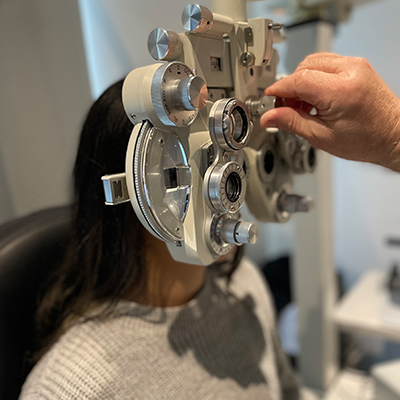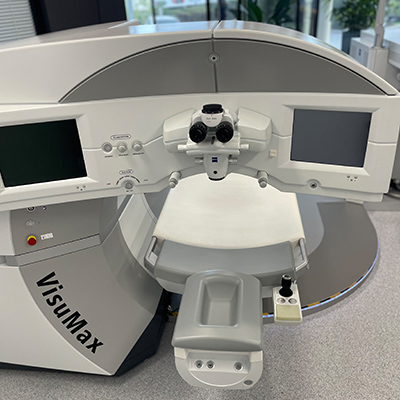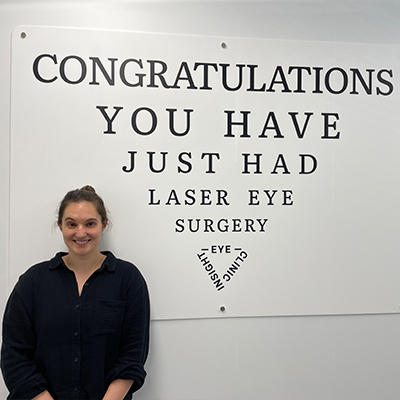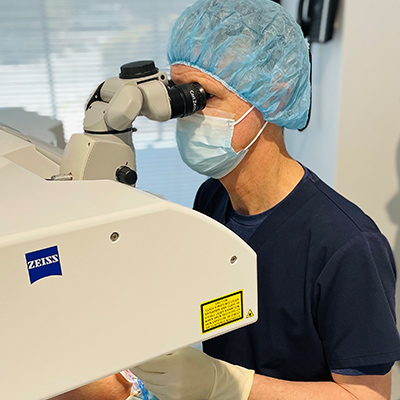YAG1
Can My Cataracts Grow Back After Surgery?
Having cataract surgery may feel confronting, as we agree that our eyes are precious. One of the most frequently asked questions we hear is “Can my cataracts grow back?” And although they cannot ‘grow back’, other opacities (build ups on the new intraocular lens that cause cloudy vision) can occur following surgery that might require treatment.
 What happens during cataract surgery?
What happens during cataract surgery?
During surgery, an intraocular lens (IOL) is placed within the eye. The artificial lens sits inside a natural bag called the lens capsule. Intraocular lenses are designed to last a lifetime and you should also expect the results of your cataract surgery to remain stable.
Why your vision might become blurred again following surgery
 PCO (posterior capsule opacification) occurs in 20-50% of patients within 2 to 5 years of cataract surgery. It can cause significant visual symptoms and is often referred to as a “secondary cataract.”
PCO (posterior capsule opacification) occurs in 20-50% of patients within 2 to 5 years of cataract surgery. It can cause significant visual symptoms and is often referred to as a “secondary cataract.”
PCO occurs due to the formation and movement of epithelial cells that causes the capsular bag to become cloudy. This is more likely to develop in younger patients.
Treatment for PCO is simple!
The good news is that PCO can be easily treated with a laser. It is a quick five minute procedure performed in a clinical room. Your ophthalmologist will use an anaesthetic eye drop to numb your eyes. This procedure is known as a YAG laser treatment. Once the PCO is treated with laser, it is extremely rare for it to reoccur. Vision in the eye will recover very quickly following treatment.
Most patients will notice a significant improvement by the next day. However, due to the effects of the dilating drops, you will not be able to drive for 2-4 hours following the treatment. Few people may experience a red, sore eye for a day or two after the procedure, but in most cases there is no pain.
You can expect to see ‘floaters‘ as small shadows across your vision afterwards. These usually disappear within weeks.
Complications following PCO treatment are rare but may include: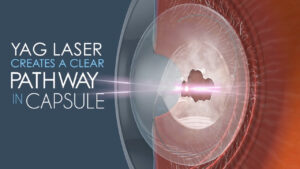
- Swelling of the retina (macular oedema) causing blurred vision (This usually improves with time but may require treatment)
- Damage to the intraocular lens implant
- Increased eye pressure
- Retinal detachment
These complications can all be successfully treated if they were to occur.
We understand if you wish to delay your surgery until your symptoms become more prominent. Cataract surgery is usually not urgent. It is safe to delay treatment until you feel comfortable to proceed.
♦ However; your vision will continue to deteriorate over time due to the cataracts and can largely impact your quality of life. ♦
If surgery is delayed for too long, the cataract can become advanced and very dense. This can make surgery more difficult and increase the risk of complications. If you feel that the cataracts are affecting you, then having surgery is a great benefit and you should plan to have them removed before they advance.
Difficulty with vision when driving is the most common complaint we receive from patients with cataracts.
Ensuring that your vision meets driving standards is important for many reasons. Most importantly, for the safety of others and yourself on the road. In WA, once you reach the age of 80 you need to undergo an annual medical assessment before you can renew your driver’s licence.
We have seen time and time again how devastated patients are once their driver’s license renewal is denied. Cataract surgery will remove the opacity restricting your vision and depending on the provider you choose, a premium IOL can be used to have you without glasses all / most of the time (provided other vision impairments do not exist in addition to the cataract).



